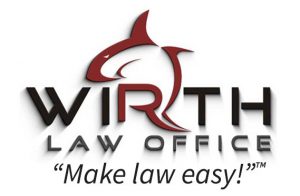
Oklahoma is a state with a high incarceration rate. Our state had the third-highest incarceration rate nationwide, with 657 out of 100,000 residents in prison during one recent year, according to the U.S. Justice Department Bureau of Justice Statistics. Once you’ve done your time, it’s time to start a new life. Luckily, in Oklahoma, the law allows the governor to pardon both misdemeanors and felonies under certain conditions. A Tahlequah Oklahoma pardon attorney can help you understand how a pardon may fit into your plans at present and how to go about getting a pardon.
What Is A Pardon?
Think of a pardon as an official act of forgiveness for a crime committed. A pardon assumes the offender was guilty. Someone seeking a pardon asks for “forgiveness” for their crime.
A person seeking a pardon is also taking a step into being re-assimilated into society. When the pardon is granted, it is as if society opens its arms and welcomes the offender back into the fold.
When a state has a high incarceration rate, many offenders will eventually seek pardons. Pardons are filed with the Oklahoma Probation and Parole Board. The board sends its recommendations to the governor who usually concurs with the board’s recommendations. During a typical month, the board will usually recommend pardons in about half of the requests for pardons received.
Pardon Applications Are Complex
There are a lot of elements to a pardon application. In essence, the applicant must show the pardon board they are sorry for their crime; they have the means to be re-assimilated successfully, including a job and a stable place to live; their repentance is sincere, and they are ready to return to full law-abiding citizenship.
The application is long, and it must be completed fully and accurately. It is aimed at ascertaining an applicant’s readiness level to fully re-enter society.
Accept responsibility: Acceptance of responsibility is key. It is not enough to claim innocence. The board wants to know that a person has accepted responsibility and has atoned for their offense.
No recent pardon applications: If you have been denied a previous pardon request, you must wait at least another year before reapplying for a pardon. This is one reason why it is so important to have an experienced Tahlequah Oklahoma pardon attorney handle your case. The application is long and complicated, and it is important to get it right the first time.
No pending charges: It is important that you have not been arrested or charged with any subsequent crime, whether it is a misdemeanor or a felony, when you file your application for a pardon. If you have been arrested and charged, it is likely that your pardon request will be dismissed outright.
Not currently in jail or in prison: In order for a pardon to be granted, the applicant must have concluded all probation, parole, and sentence obligations. If the applicant is still in jail, in prison, or on probation, the pardon request will be denied.
Other Components Of The Application, Process, And Evaluation
Criminal History Report:
In addition to the application itself, the Pardon and Parole Board and the Department of Corrections conduct their own investigation. This internal investigation is meant to corroborate the information supplied by the applicant as well as detail an applicant’s criminal history. It is important that all this information is as complete as possible when the applicant submits their request for pardon. Omitting arrests or charges will most likely cause the petition to be denied.
Credit status and civil litigation: The board will also want to know about all financial obligations. To that end, the applicant must submit a credit report as well as list all outstanding federal, state, and local tax obligations as well as any other debts owed. If the applicant has filed for bankruptcy, that must be disclosed in the application. It is important that the applicant explain all adverse financial issues within the application. Finally, if the applicant is involved in any civil disputes, that must be disclosed as well.
References: It is important to add at least three character witnesses to your application. Character witnesses go a long way to paint a portrait of who you really are. These character witnesses may not be related to you.
Other required documents: A complete pardon petition must include a certified judgment and sentence for each conviction; a current credit report; proof of employment (or a statement that you’re not working); proof of residence; and a certified statement from the court clerk that all fines and court costs have been paid.
The Importance Of A Pardon
A pardon is not an expungement. It is essential to know the difference. An expungement in Oklahoma is the erasure of a criminal record. A pardon does not erase a criminal record, but it does open certain doors in society.
A pardon can allow you to vote again. It can allow you to own guns again.
Also, it can improve your ability to get a job and to hold a job. It will qualify you to hold public office. If you own a restaurant and need a liquor license, a pardon will enable you to apply for a liquor license.
Have A Tahlequah Oklahoma Pardon Attorney Help
First and foremost, because a pardon can only be applied for once a year, you want to make sure that you use the services of an experienced pardon attorney to enhance the probability that the petition will be granted. The petition itself is somewhat long and complicated. Hence, applicants often require help preparing the petition itself and all the supporting documentation.
A Tahlequah pardon attorney knows where to find the required documentation and also knows what the Pardon Board wants to see within the application itself. Finally, a pardon attorney can help you understand the entirety of the process. The process can take up to a year to complete. A pardon attorney can help advise you every step of the way and help you get the pardon you seek.
Low-cost Initial Consultation: Tahlequah Oklahoma Pardon Attorney
For a low-cost consultation with a Tahlequah attorney, call Wirth Law Office – Tahlequah at 918-458-2677 or toll free at 1-888-447-7262.
Or, if you prefer e-mail, you may enter a legal question in the form at the top right of this page and we’ll contact you by e-mail as soon as possible.








